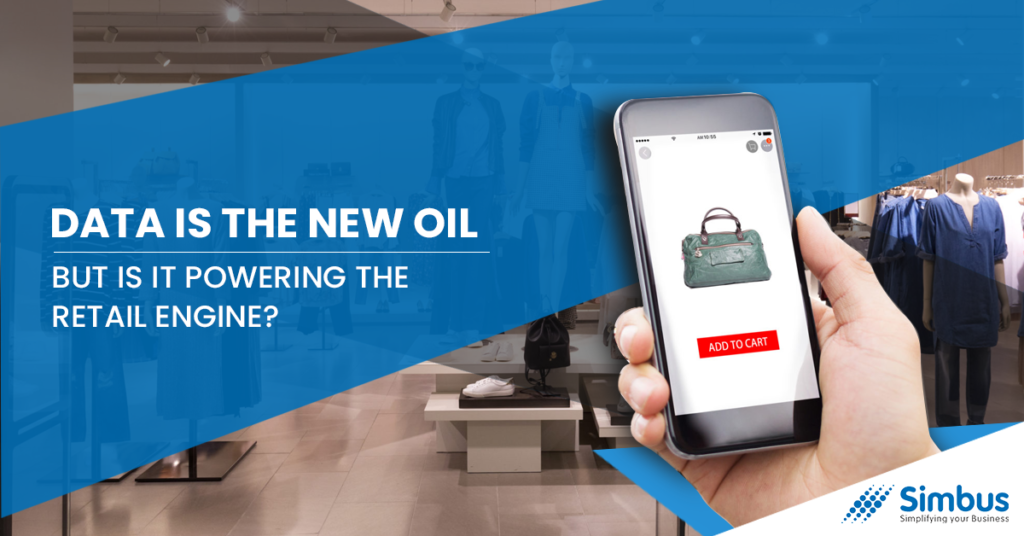
It is now undisputed that today, data is playing a key role in businesses around the world, one that will only become more central as time passes. Using data is the most accurate way any organization can understand the sentiments of its customers. Actionable insights derived from data are proven to generate better results for companies. According to a study at the Massachusetts Institute of Technology, companies using data-driven decision making have been found to generate 5-6% greater output and productivity than if they had not adopted it, in addition to improvements in other performance measures such as asset utilization, return on equity, and market value.
Even as data analytics has gained much importance in the business community today, many players still face challenges in adopting and implementing it. McKinsey says that the top 3 challenges faced by companies trying to make the transition are:
i) Deciding which data to use, and where to look for it
ii) Handling analytics, and securing the right capabilities to do so, and
iii) Using insights to transform operations
While these challenges affect the global market, Indian companies have some challenges unique to them additionally. We discuss them here.
High Volume of Data
In India, the middle class is burgeoning, and with it is its spending power. According to the World Economic Forum, by 2030, the country will move from an economy driven by ‘bottom of the pyramid’ to one driven by the middle class, with the latter forming 80% of the households, up from 50% today. This segment will account for 75% of consumer spending in 2030.
This upward mobility is expected to increase spending to the tune of 2-2.5x on essential categories including food & beverages, apparel, and personal care, among others. It is also expected that there will be a 15-20% rise in ownership of durables like washing machines, refrigerators, TVs, and personal vehicles.
With the market moving towards greater spending by consumers, retailers are bound to grow as well. As retailers sell more, they are collecting tons of data. The volume of data present in the retail companies of India today is unprecedented, and it is only going to grow in size in the future. In addition to this, retailers today are getting data from multiple sources internally as well: from supply chains, sales, and also from stores across the business.
The question to address is: are the legacy systems geared to handle this vast volume data?
Unfortunately, no. There are two typical problems with the existing systems in today’s organizations:
i. They are not scalable, or companies have many systems working in silos for different purposes.
ii. Rampant use of spreadsheets. Despite there being many limitations and constraints in the usage of spreadsheets, companies find it difficult to let go of these legacy systems.
Lengthy data-cleaning processes
As mentioned earlier, companies today employ multiple platforms to store data for different purposes. This makes it difficult to collate data to get a broader view of the company’s performance. As a result, when teams want to make sense of available data, a lot of time goes into putting it together coherently before they can start using it effectively. A number of issues creep up in data-storing systems in use by most companies today:
i. Discrepancies: Data collection and storage is predominantly a manual process today. Moreover, there are typically multiple people from various departments tasked with maintaining the data. As a result, discrepancies such as differing records of the same data can creep up, owing to human error. Such errors can cause major delays in the company’s plans.
ii. Unclean Data: In addition to discrepancies in the data, it is possible that certain attributes of a type of data are missing, or are incorrectly recorded, given that this whole process is usually manual. For e.g., if a person is trying to record some data about footwear, a seemingly innocuous spelling error like ‘sandles’ instead of ‘sandals’, or if multiple words are used to refer to the same product, like ‘shoe’ and ‘shoes’, software in use today will not be able to identify that they are not, in fact, two different products. Moreover, if a person forgets to input a certain characteristic about the product, this software does not validate its data to highlight the missing information, something that can cause problems later.
In conclusion, the fact that much of data management in companies today is a manual process makes them susceptible to the risk of human error, which cannot be ruled out. Ensuring the accuracy of the data demands a lot of attention and, in turn, a lot of time. This is an inefficient way for decision-makers to spend their time. They should be spending it in drawing insights from the available data and driving rapid action to achieve their goals instead of trying to piece together different copies of data first.
Complex business models
However, that’s not all. With the internet and online shopping achieving deep penetration into India’s towns and villages, it is only logical for retailers to get on the bandwagon and go online. However, this does not mean that they will abandon their presence in the age-old brick-and-mortar stores. We spoke about this in our previous blog.
Companies are also adopting newer innovations with their offline presence. While there are the conventional Exclusive Brand Outlets and Multi-Brand Outlets, models such as the Shop-in-Shop (SIS) and the Franchise are also picking up steam in today’s competitive market. What this means for the business is that data is coming in from various platforms, sometimes for the same product as well – the same product bought online or offline can be for different prices. It also takes different forms – businesses use both SoR and Outright buying models across their stores, which also creates different types of data.
The retail market in India has an upcoming opportunity that is unprecedented – with consumer demand set to rise significantly over the next decade, and data poised to play a more central role than ever in corporate decision making, the complexity of data that will be collected by businesses will only increase. To remain competitive in these changing times, action needs to be taken today – modern tools need to be adopted.
Board Software is what retailers need. It has a solution for all the challenges retailers face today, and more. Board makes it possible to connect, in an end-to-end process, all of the different forecasting, analytics, and retail planning steps required to make better retail decisions. It enables retailers to increase the visibility of the data from across the businesses for more-informed decision-making, less wastage, more efficient operational activity, and a more competitive organization.
It is the ‘One-Stop-Shop’ platform for any smart and agile retailer who wants to tackle all of their analytics and planning needs in a fraction of time and cost compared to traditional solutions. It rises above the limitations of these traditional solutions and better equips the business to take on the challenges they were not able to formerly.
As the Indian retail market grows and throws new challenges on retailers, Board is what they need to maintain and improve their positions. Talk to a Board expert today to see how it can work for you!




